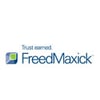
Alexis Becker and Ryan Kirke

For small- to mid-market businesses (SMBs), including golf courses, country clubs, and similar operations, selecting the right operational system is a critical decision. It can affect everything from efficiency and compliance to long-term growth and financial management. One common dilemma is choosing between a niche, industry-specific platform and a comprehensive ERP solution.
While both options have their merits, understanding the strengths and limitations of each is essential to making an informed decision. Let’s explore how they compare, particularly for the unique needs of golf courses and country clubs.
What Are Niche, Industry-Specific ERP Systems?
Niche systems are designed specifically for industries like hospitality, recreation, or retail. For golf course or country club management, systems like foreUP and ForeTees often include features tailored for tee time bookings, point-of-sale (POS) for food and beverage, and member management.
Advantages:
- Tailored Features: Designed with specific workflows in mind, these systems streamline daily operations like managing tee times and processing membership dues.
- Quick Setup: Pre-configured templates and workflows make niche systems easier to implement, perfect for small teams.
- Cost-Effective Initial Investment: Industry-specific systems often have a lower upfront cost compared to broader ERP solutions.
Disadvantages:
- Weak Reporting Capabilities: Many niche platforms excel at operational tasks but lack robust financial reporting, forecasting, or consolidation tools. For example, while industry-specific software is great for managing golf reservations, the accounting functions often require manual workarounds or exports to external tools, limiting visibility into the club's overall financial performance.
- Scalability Issues: As your business grows, you may outgrow the capabilities of a niche system. For instance, expanding into new services like hosting corporate events may require integrations or workflows that the system can’t handle effectively.
- Vendor Lock-In: With limited integration options, you may become overly reliant on a single vendor, restricting flexibility as your needs evolve.
What Are Commercial ERP Systems?
Commercial enterprise resource planning (ERP) solutions, like NetSuite, provide a centralized platform to manage finances, inventory, human resources, and customer relationships. While less specialized out of the box, they offer a flexible foundation for growth.
Advantages of a NetSuite Implementation:
- Comprehensive Financial Visibility: NetSuite allows you to consolidate data from multiple systems—like tee-time bookings, food and beverage POS, and membership management—into a single source of truth. This facilitates real-time financial reporting and data-driven decision-making.
- Scalability and Customization: ERP solutions grow with your business. Modules can be added or customized as you expand, supporting everything from multi-location management to sophisticated financial planning.
- Integration-Friendly Ecosystem: Platforms like NetSuite integrate with industry-specific software to create a hybrid solution that combines the strengths of niche systems with the reporting and financial power of an ERP.
Disadvantages of a NetSuite Implemenation:
- Higher Upfront Costs: Implementation and licensing fees may initially seem daunting, but the long-term ROI often outweighs these expenses, especially as your needs grow.
- Learning Curve: Robust systems like NetSuite require training for your team to fully unlock their potential. However, this investment in learning pays off in operational efficiency and accuracy over time.
Why a Hybrid Solution Often Makes Sense for Golf Course and Country Club Management
For many golf courses and country clubs, the best approach is combining the strengths of both systems. For example:
- Use industry-specific for operational tasks like tee-time bookings and restaurant POS.
- Integrate NetSuite to handle financial consolidation, reporting, and compliance.
This hybrid setup ensures that operational needs are met while providing comprehensive financial data to help business owners make informed decisions. Rather than relying on disconnected spreadsheets or patchwork solutions, an ERP like NetSuite brings everything together, offering a clear picture of profitability and operational health.
Key Considerations for Golf Course and Country Club Accounting and Financial Management
When choosing the right ERP system for your golf course, it’s helpful to ask yourself:
1. Are Financial Reporting Needs Being Met? Does your current system provide a clear picture of your club's financial health? If not, an ERP may be essential.
2. How Will This Scale? Will the system grow with you as you expand services or locations?
3. Can You Optimize Costs? Niche systems are affordable upfront but may require additional tools or workarounds to handle reporting and accounting, increasing hidden costs.
4. How Easily Can It Be Integrated? Look for solutions that integrate seamlessly, combining the strengths of niche systems with ERP power.
Why choose a NetSuite implementation partner like Freed Maxick?
At Freed Maxick, we specialize in helping businesses like golf courses and country clubs implement accounting and financial solutions that fit their unique needs. We understand the challenges of managing operations while ensuring financial accuracy and growth. Our MAXIS® team can guide you through integrating niche systems with a scalable ERP like NetSuite, so you get the best of both worlds.
Contact Alexis Becker at alexis.becker@freedmaxick.com or Ryan Kirke at ryan.kirke@freedmaxick.com to schedule a complimentary discovery call to see how we can help you streamline operations and support your growth goals.